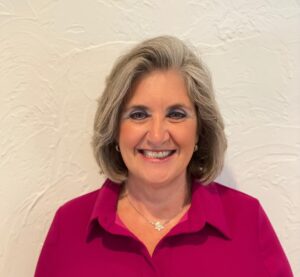By Rabbi Rosette Barron Haim

(JNS) When I think of the High Holy Days, I think of generations of our people who have come together to worship and reconnect to the tradition.
Rosh Hashanah, Yom Kippur and the days in between the holidays present an ideal time to strengthen our ties to God, Torah and Israel—our people and the State of Israel. This year, at a time of deep disagreement when it comes to Israel, we ask: What can we do to ensure the continuity of emotional attachment to Israel from generation to generation?
I have seen the answer powerfully manifested through my daughter. She received Israel bonds when she was an infant. Today, she gifts them to her friends when they have babies. She views Israel bonds as an opportunity to get involved in the Jewish community, make a meaningful investment, demonstrate her love for Israel and ensure that her friends can stay connected to Israel.
Her story, like many of our generations, embodies precisely why various congregations and communities across the U.S. make Development Corporation for Israel/Israel Bonds the centerpiece of their High Holy Days appeal. Around the time of the High Holy Days, every newly purchased Israel bond builds a new connection to Israel. Cultivating these connections is more essential than ever in the current climate of Israel-Diaspora relations. Israel Bonds is providing a touchpoint for building, renewing and revitalizing one’s relationship with Israel and its people.
In the Jewish community, and particularly for synagogue communities, another source of disconnection in recent years was COVID-19. Although the pandemic is mostly considered behind us, some believe that synagogue life may never be the same, and particularly that in-person attendance of services will never reach pre-pandemic levels.
Israel Bonds’ High Holy Days appeal program has responded to this ever-evolving landscape, meeting congregants and communities where they are. For decades, worshippers would find a tab card on their seat. Following the rabbi’s sermon or remarks from another congregational leader, they would fold the card on their desired bond purchase amount.
Now, Israel Bonds provides digital resources that expand the opportunity to connect with Israel beyond the sanctuary and in their own homes. Each synagogue and community receive recommendations for conducting the appeal; samples of a letter to the congregants, email bulletin article and sermon; and talking points. Communities can customize the materials to their liking before presenting the appeal to their congregants. With the new offering of virtual tab cards in recent years, congregants who missed the sermon in real-time can still participate in the appeal. We make it as easy as possible on community leaders to lead a meaningful service that includes Israel in this High Holy Days season.
Yet even with the availability of these new digital resources, rabbis and other Jewish leaders know that they still play a pivotal role in drawing Israel closer with their words from the bimah as they deliver their Rosh Hashanah and Yom Kippur sermons. Quite simply, rabbis appreciate that their message will not be taken lightly, and that they can use their influence to move their community to action.
Accordingly, rabbis or lay leaders who present an Israel Bonds-focused appeal to their congregants have a golden opportunity to make a compelling and impassioned argument for growing our connections with Israel, especially at a time when the instinct to withdraw from Israel is lingering in more congregants’ minds than it was during past years. Persuasive messages from the bimah can also bring people together, galvanizing diverse sectors of our membership around the common cause of their love and support for Israel.
In these ways, the appeals of this High Holy Day season are highly emotional, influential messages in the most poignant possible moments. And in many cases, they will build and bolster connections to Israel, making an impact poised to be felt for generations to come.
*
Rabbi Rosette Barron Haim is Chair of the Israel Bonds Rabbinic Advisory Council. Preceding provided by JNS.org.